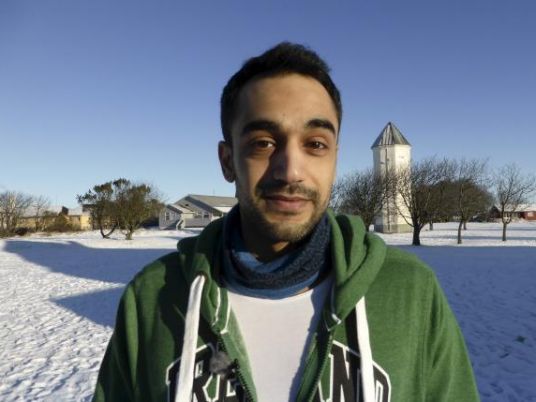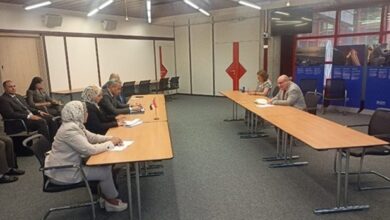
A workshop that seeks to educate asylum-seekers in Norway about Western attitudes to sex and sexual assault will appeal to European neighbors struggling to cope with a wave of refugees, but not everyone who attends the course is a fan.
Sitting with his arms crossed in a classroom with 21 other male Syrian asylum seekers, Issam Alhlabi is wondering why he has been compelled to attend.
"I know all this already from back home," the 52-year-old teacher from Aleppo told Reuters.
"Syria is like Norway … In every country you have backward people with low education."
The ultimate aim of the course is to discuss – and discourage – rape in the context of a Scandinavian society that is more sexually liberal than back home.
But for at least a few of the attendees, it exposes implied preconceptions about the sexual mores of those in the class, not to mention their views on violent crimes like rape.
"It is unexpectedly interesting: that most people think we did not experience such things, because we are outsiders, foreigners," commercial airline pilot Muaz, 26, told Reuters.
"We go through them every single day in our country. I have two sisters and they could be harassed walking anywhere in the world," said Muaz, who declined to give his last name.
"We do experience such things. It is not like we come from a peaceful place."
Norway initiated the program after a series of attacks on women at night in the streets of Stavanger, Norway's third-biggest city, in 2009. According to public broadcaster NRK, which reviewed court papers, 17 of the 20 men convicted in the cases were foreigners.
The course will reverberate with European countries facing the worst migration crisis since World War Two, especially after mass sexual assaults on women in Cologne, Germany, on New Year's Eve were blamed on migrants.
What signals?
Set in a rural community on Norway's west coast, the refugee camp is surrounded by snow-covered fields. The nearest neighbor is a cluster of World War Two German bunkers; the loudest noise comes from Atlantic Ocean waves crashing on the nearby beach.
When a Reuters correspondent visited a one-day workshop on Tuesday, the teacher, Linda Hagen, was showing the classroom a picture of a Norwegian brunette in a short dress and high heels, and asking: "What signals is she giving?"
The men broke into groups to discuss and report back to the class.
"It could be a very normal situation," said one. "It is not unusual," said another. "She could be in a cafe," said a third.
No one said she looked sexy or that she was provocative.
Hagen said the course aimed to address an awkward subject as sensitively as possible.
"This is a difficult subject. We have the best intentions in running this course but it is a tough thing to discuss. We don't know what people have experienced before," she told Reuters.
Participants in the course are not addressed as potential perpetrators but as future members of Norwegian society who can make a positive contribution by helping prevent sexual assaults.
One scenario features Hassan, "a helpful, good man who is well-liked" and who has been in Norway for more than a year. He goes out with Arne, a Norwegian, who says he wants to ply Stine, a Norwegian woman, with alcohol to "soften her up". What should Hassan do, asks the teacher?
The consensus is that Hassan should try to stop Arne or make sure Stine gets home safely.
The course also confronts hard questions that are being discussed around the Western world, including US college campuses. In one case, the men watch a video showing a boy and girl talking at a party, dancing and laughing.
The two go upstairs to a bedroom where he forces sex on her, despite her saying no.
"What do you think of the boy? What do you think of the girl?," asks Hagen.
"If I am the guy, I would say she was interested. She went up the stairs, she sat on the bed," says one man.
Another says: "I blame him because he uses power. Both should be in agreement."
Alhlabi is firm in his opinion: "To me it was clear from the beginning that this was rape.
"It was obvious she was afraid when she was going up the stairs. Kissing and hugging in Europe is not unusual."
Alhlabi's comments aside, Hagen said she had seldom received negative feedback since she started teaching the course in 2011.
"If we can help avoid misunderstandings, it is very important."
And some said the course was useful.
"I knew from before that girls here are freer than back home, but now I understand better how," said Hani Salloum, a 25-year-old Syrian student, who arrived four months ago.




